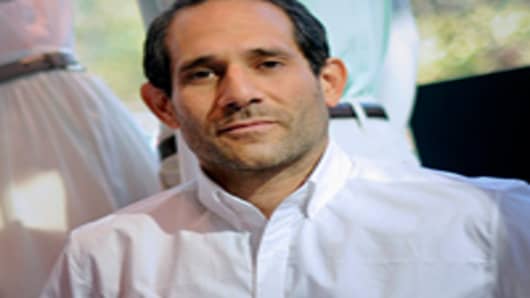American Apparelhas gone through the ringer like a worn out T-shirt. However, its controversial CEO says that not only his clothing, but his business model, will be more durable than anything made in China.
"Made in the USA can be, and probably will become, the least expensive option," says Dov Charney. "Transportation costs are going to go up. The cost of doing business in China will go up."
Charney talked to CNBC in his first business interview in years. This as the company's losses narrow, and preliminary sales numbers for March show 15 percent growth, with comparable store sales jumping 21 percent.




